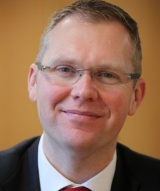Mobilising the yet to be mobilised
Now more than ever, politics is local. The importance of people having control over their own lives has rarely been as salient as now. The opportunities for local leaders to meet this need should be grasped by all of us with...
Now more than ever, politics is local. The importance of people having control over their own lives has rarely been as salient as now.
The opportunities for local leaders to meet this need should be grasped by all of us with a commitment to improving the lives of the people we serve.
This research reminds us of the importance of place on our sense of wellbeing. It also indicates that elected politicians and activists underestimate the potential enthusiasm there is in our communities to be part of change and to improve and protect our environment.
It confirms our experience as city leaders: that decisions made involving the community are better decisions. That reliance on the “usual suspects” to confer the appearance of engagement isn’t enough. And that poor consultation undermines trust and can be as bad – or worse – than no consultation at all.
There is a timely reflection on the impact so far of devolution on people’s sense of local control. Enthusiasts for more decisions to be made locally should acknowledge that structures on their own are not enough. This is a process and a mindset to enable and empower communities, and where leaders have adopted that approach there is much to learn. None of us should be complacent once devolution deals have been secured: that is only the start. And the potential for shaping the environment is more important than ever.
The focus on the environment reminds us that the full flourishing of our communities relies on responsible management of the resources we have. And that it benefits all of us: people value their surroundings, including public space, clean air, wildlife and greenery, not only because they feel a responsibility for it but because they know it gives back, in better health and wellbeing for them and their family.
In a time of limited financial resources local leaders should note the advice of this report: that there is untapped resource in your community to help you make better decisions. The yet to be mobilised are a potent force for good, and harnessing their love of the place where they live could enable city leaders to make some of the big shifts on environmental actions that are needed but often dismissed as too difficult.
The approaches are important too: focusing on local benefit, fitting decision-making into people’s lives, giving people permission to act and making it clear that their participation will make a difference.
Both of us lead cities where environmental issues can often end up being the preserve of the few: we believe this research gives us and many others the insights to ensure that decisions on issues from tackling fly-tipping to generating clean energy, can be shaped by the many.
Our cities are among 70 local authorities across the UK that have committed to shifting to 100 per cent clean energy by 2050, not only because it is good for the planet but also because it is good for the people we serve. It gives us a competitive edge globally if we adopt new technologies sooner, jettisoning reliance on dirty and old-fashioned fossil fuels. It creates economic growth and helps to reduce energy costs for consumers and business. It also will make a material improvement to our surroundings, as we clean up our air.
Ensuring we can deliver on that vision will need all the insights of research like this, because a transformation of our economy on this scale will need public consent and support. The best way to build that consent and support is unlocking the enthusiasm of the yet to be mobilised to shape their surroundings. Without them, leaders are missing a trick.

